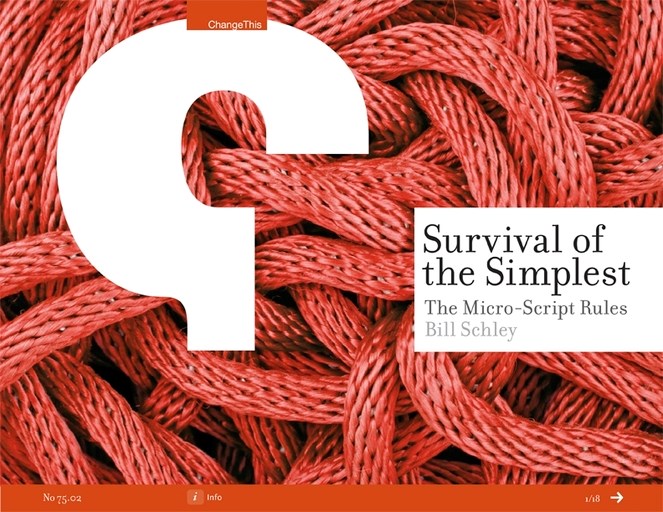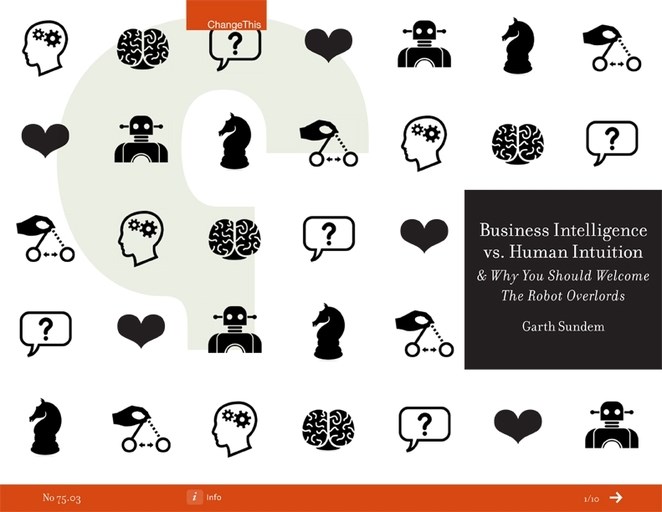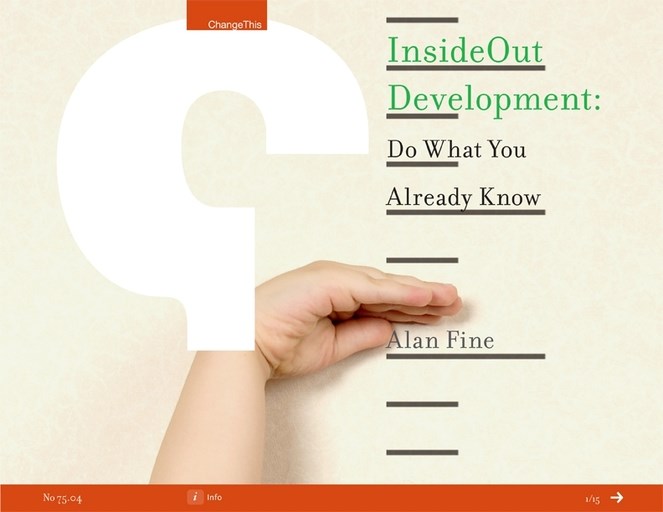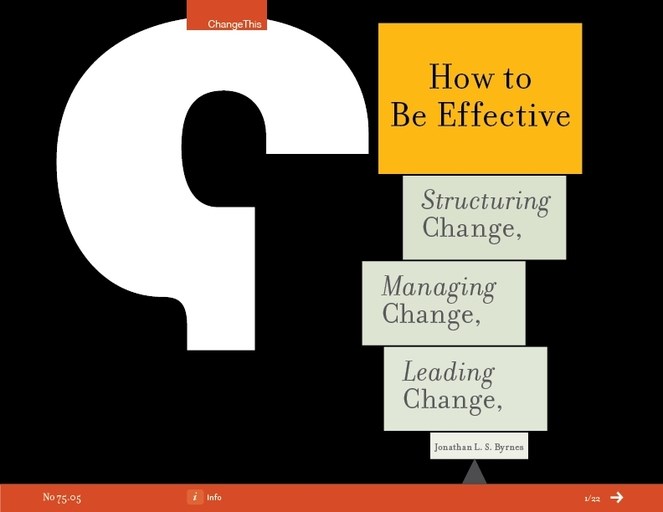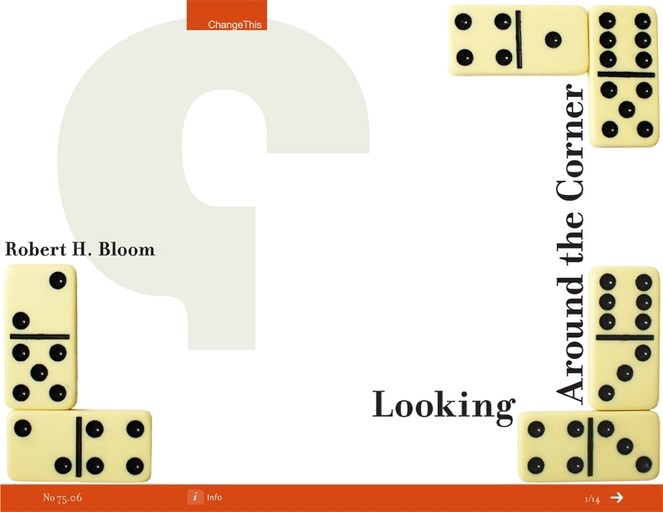ChangeThis RSS
"I have found out how to simplify the confused and mucked-up world of communications so that your message can penetrate the maelstrom of modern media, whether you are a global corporation, a local politician, a college lecturer, a sales rep or a start-up. I have a magic bullet that will sharpen
whatever story you have to tell so that it gets to the heart of the matter, cuts through mental barriers and lodges easily in the mind. As an advisor to companies, politicians and institutions of higher learning, I've been thinking about this problem for about twenty years, and have been figuring out the solution for the last two. I don't know how to de-complicate my cable bill, or untangle the knots in the U.S. Congress, but I do know about this. This is my small part to play in the crusade.
So here's your answer."
Continue reading
"In the weird, wild world outside the Petri dish, the correct decision is not always the right decision. There's disconnect between the robot logic of business intelligence and human intuition of right and wrong. Does this disconnect imply that humans use free will to promote the koombayah ideas of fairness, morality, and goodwill toward men and most charismatic megafauna? Or is the human brain simply a cold, rational, pre-programmed computer that happens to take into account more factors than a Game Theory model?"
Continue reading
"If knowledge really were all it took to be a high performer, then all any of us would have to do would be to read that book or take that class and we'd all be winning championships. We'd all be incredible managers, great teachers, phenomenal parents and performance.
But we're not. Why? Because the biggest obstacle in performance isn't not knowing what to do; it's not doing what we already know."
Continue reading
"When I talk to former students, clients, and executives, I've found that their biggest concern is being effective—going beyond conceiving great new things and actually driving them into practice.
I've also seen that most people make two big mistakes when they think about change:
They fail to realize that managing change requires a really different process from day-to-day management, not harder but very different.
They approach change in a one-size-fits-all way.
Successful change, being effective, involves three things: structuring change, managing change and leading change. I call this The Golden Triangle of Change."
Continue reading
"From the perspective of my corner office and experience in boardrooms, I observed that we business leaders planned our future by using previous years' financial results as our base line. Today, this relevant but regressive methodology is more-often-than-not still in use, for want of a progressive process coupled with robust software.
This fixation on an obsolete planning process guarantees that firms that use it will not keep pace with the rapid, substantive changes in our business world."
Continue reading

